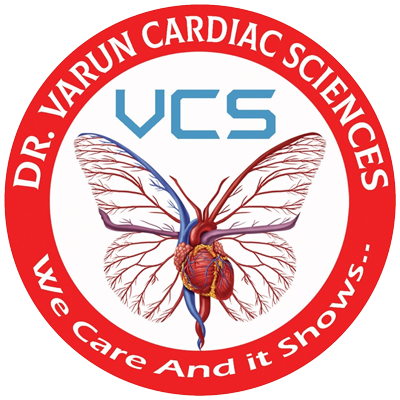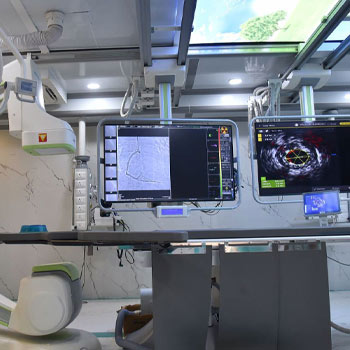What is Advanced Cardiac Surgery?
Cardiothoracic surgery, particularly advanced cardiac surgery, represents a pinnacle in medical advancement. This specialized field focuses on intricate procedures aimed at treating complex cardiovascular conditions. From innovative surgical techniques to cutting-edge technologies, advanced cardiac surgery encompasses a wide array of procedures designed to restore and improve heart function. In this comprehensive guide, we delve into the nuances of advanced cardiac surgery, its evolution, procedures, benefits, and future prospects.
How has advanced cardiac surgery evolved over time?
Advanced cardiac surgery has evolved significantly over the decades, driven by breakthroughs in medical science and technology. Initially, procedures were limited to correcting congenital heart defects and repairing damaged valves. However, with advancements in surgical techniques and diagnostic tools, the scope of cardiac surgery expanded to include complex coronary artery bypass grafting (CABG), minimally invasive procedures, and robotic-assisted surgeries.
What are the key procedures in advanced cardiac surgery?
Coronary Artery Bypass Grafting
Coronary artery bypass grafting remains one of the most common advanced cardiac surgeries. It involves creating new routes for blood flow to bypass blocked or narrowed coronary arteries. This procedure can significantly improve blood flow to the heart muscle, relieve chest pain, and reduce the risk of heart attack.
Valve Repair and Replacement
Valve repair and replacement surgeries are crucial in treating heart valve diseases such as aortic stenosis or mitral regurgitation. Advanced techniques allow surgeons to repair valves whenever possible, preserving natural heart function. In cases where repair is not feasible, valves can be replaced with mechanical or biological substitutes
Minimally Invasive Cardiac Surgery
Minimally invasive cardiac surgery techniques have revolutionized treatment options for heart patients. These procedures involve smaller incisions, resulting in reduced pain, shorter recovery times, and lower risks of complications compared to traditional open-heart surgeries. Minimally invasive approaches can be used for valve repairs, CABG, and even some complex congenital heart defect corrections
Robotic-Assisted Cardiac Surgery
Robotic-assisted surgery combines the precision of robotics with the expertise of cardiac surgeons. Using robotic arms and high-definition cameras, surgeons can perform intricate cardiac procedures with enhanced accuracy and control. This technology allows for smaller incisions, reduced trauma to surrounding tissues, and faster patient recovery
What are the benefits of advanced cardiac surgery?
Improved Outcomes
Advanced cardiac surgery techniques have significantly improved patient outcomes over the years. Higher success rates in procedures like CABG and valve repairs mean patients experience reduced symptoms, improved quality of life, and increased longevity.
Faster Recovery
Minimally invasive and robotic-assisted surgeries typically result in shorter hospital stays and quicker recovery times compared to traditional open-heart procedures. Patients can return to their daily activities sooner, with less post-operative discomfort
Enhanced Safety Profiles
Advancements in anesthesia, surgical instruments, and perioperative care have contributed to enhanced safety during cardiac surgeries. Improved monitoring systems and comprehensive pre-operative assessments help mitigate risks and ensure optimal patient safety
What are the future directions in advanced cardiac surgery?
Regenerative Medicine
Researchers are exploring regenerative medicine techniques to repair damaged heart tissue and stimulate cardiac regeneration. This promising field aims to develop therapies that promote healing and restore heart function without invasive surgery.
Artificial Intelligence (AI) and Machine Learning
AI-powered algorithms are being integrated into cardiac surgery planning and intraoperative decision-making processes. These technologies analyze patient data, predict outcomes, and assist surgeons in making real-time adjustments during complex procedures.
Personalized Medicine
Advancements in genomics and biomarker research are paving the way for personalized treatment plans in cardiac surgery. Tailored therapies based on genetic profiles and individual risk factors promise to optimize surgical outcomes and minimize complications
In conclusion, advanced cardiac surgery represents a culmination of medical innovation and expertise aimed at treating complex cardiovascular conditions effectively. From pioneering surgical techniques to state-of-the-art technologies, this specialized field continues to evolve, offering new hope and improved outcomes for patients worldwide. As research progresses and technology advances further, the future of advanced cardiac surgery holds immense promise in reshaping the landscape of cardiovascular care.
For those facing heart-related challenges, consulting with a qualified cardiothoracic surgeon is crucial to exploring the most suitable treatment options available in advanced cardiac surgery

